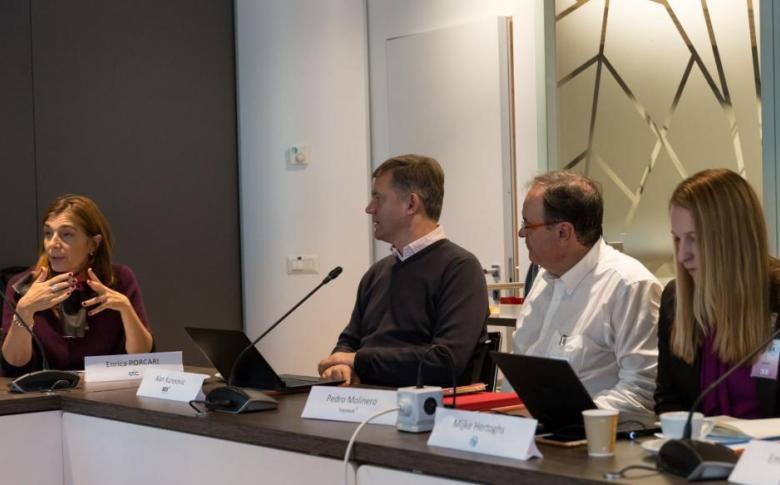Social purpose aligning with corporate purpose

The ingenuity and capabilities of the satellite industry compliment the needs of the humanitarian community; the Crisis Connectivity Charter (CCC) is a mechanism intended to make satellite connectivity easily accessible to humanitarians during emergency operations.
Several satellite companies who are signatories of the CCC met with the WFP-led Emergency Telecommunications Cluster this week to chart a model of engagement going forward.
“Partnerships are complex relationships that require a lot of work on both sides. It’s the art of understanding the shared value: the common benefits, what triggers the interest and what sustains that interest,” says Enrica Porcari, Chair of the ETC and Chief Information Officer for WFP.
It’s been a significant year for the Charter which was activated twice in 2019 – first in Mozambique after Cyclones Idai and Kenneth and then in the Bahamas following Hurricane Dorian. The International Telecommunication Union joined forces with the ETC and the satellite industry by signing the Charter in September.
Operational environments are also changing with protracted crises and climate change posing new challenges from a humanitarian technology perspective. As such, there will be opportunities to leverage the close relationships the ITU has with telecommunications administrations in countries around the world – also in terms of preparedness activities. The entry of ITU into the Charter comes at an opportune time as governments take an increasingly active role in driving domestic humanitarian emergency response.
“Effective partnerships take time, but there is growing interest from the private sector to support the humanitarian landscape,” says Gabriela Alvarado, Chief of IT Emergency Preparedness and Response.
Prepping satellite connectivity for emergency activation is just the tip of the proverbial iceberg, Gabriela points out. Making sure satellite operators and deployed personnel can speak the same technical language means first investing in capacity building; knowledge development is an aspect that also carries over to bridging the corporate and humanitarian worlds.
With the smoothest possible humanitarian operations as an end goal, the ETC continues to broker an evolving relationship with a particularly complex industry – energized by an understanding that satellite technology is crucial to emergency response in the twenty-first century.